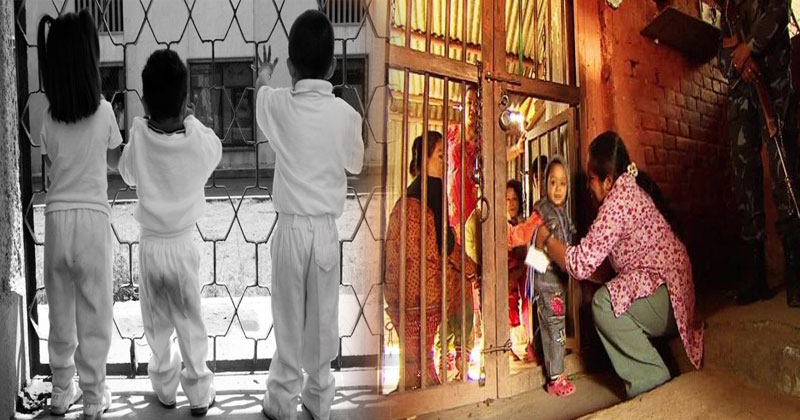
Separating a child from their parents is a difficult situation that no child should go through. Particularly when a child might feel they are responsible for their parents leaving them behind.
But what about the children whose parents are in jail? What will they do??
In the recent years, the Telangana government has introduced various initiative schemes, and one of them is a children’s nursery. Such programs are rare across the country.
Basheera Begum, the Superintendent of Special Prison for Women stated that in the state prison, 6 children have been sent to English-medium school to begin their formal education, while those of younger age attend a daycare centre that teaches them the basics and are filled with numerous activities to enhance their cognitive development at an early age.
“Apart from housing the children in special mother-child cells to encourage the motherly bonding which is known to positively impact the growing and upbringing of children, there are also other programs aimed at the educational aspect of a child’s well being,” she added.
READ ALSO: Man jailed for not sharing Facebook password
Speaking about the short-term and long-term impact on children of growing up without parents, Dr Purnima Nagaraja said, “In the short-term, parental separation leaves children struggling emotionally. Anger and sadness are normal, regardless of your child’s age, even if they are adults. Sadness can lead to isolation, loneliness, and social difficulties. Children may also underperform academically as a result of their parent’s absence. Anger can also be seen as children grapple with feelings of abandonment, guilt, worry or blame towards another parent.”
She said, “Another important short-term challenge is that children often believe they are responsible for their parent’s separation. They are particularly vulnerable to these kinds of thoughts between the ages of three and eight.”
“Coming to the long-term impact, it leaves an enduring legacy in the lives of children. The ones from broken homes are more likely to experience a higher incidence of drug use, criminality, broken marriages in their own lives and depression. On every well-being indicator, kids who come from broken families do worse, in general, than children from intact, functioning families. An ongoing parental conflict has a substantial impact on children’s long-term outcomes. No matter what happens, separation and divorce will have a negative impact on your children, but the longer the conflict lasts, the greater the impact is,” she concluded.

Post Your Comments